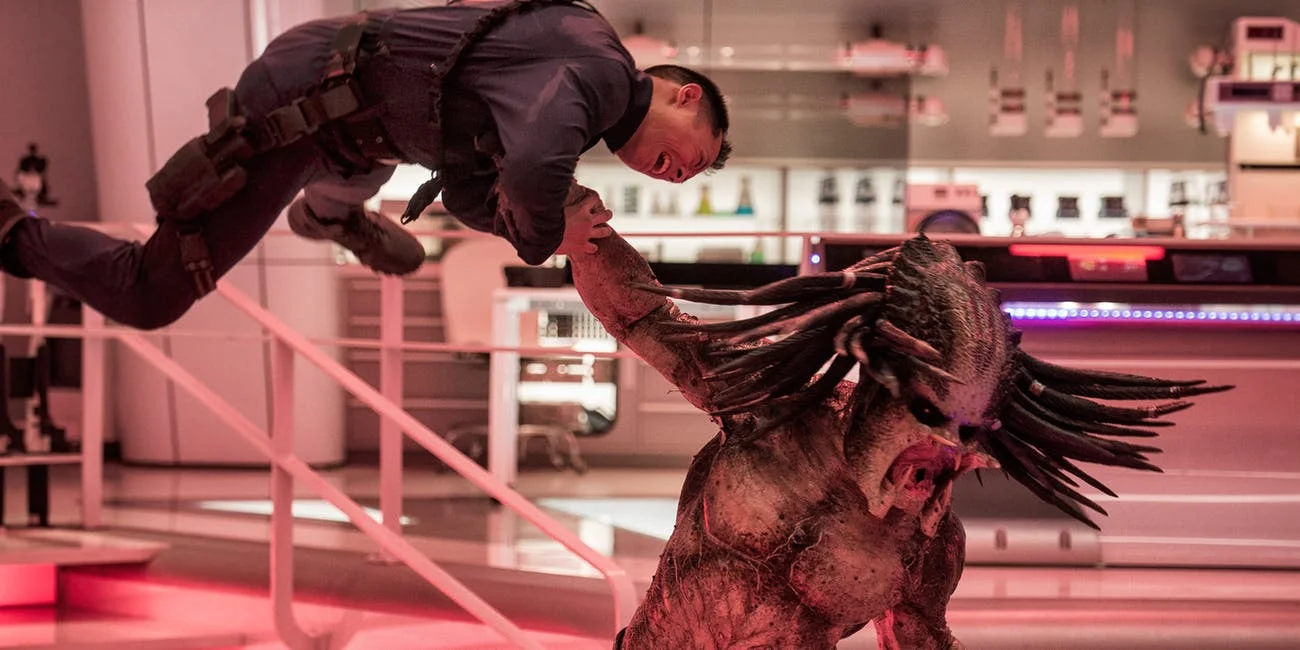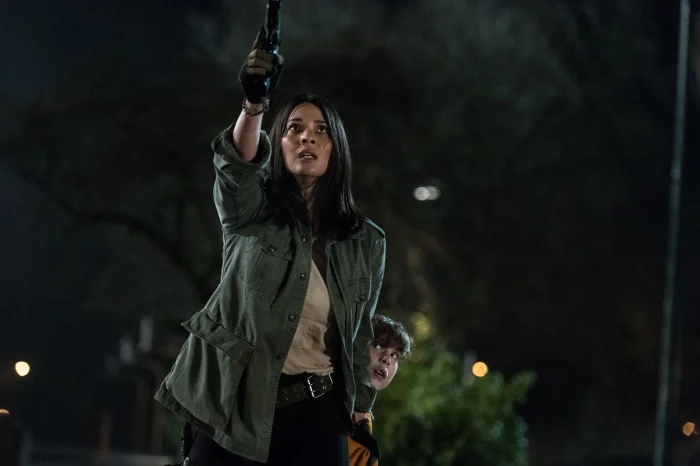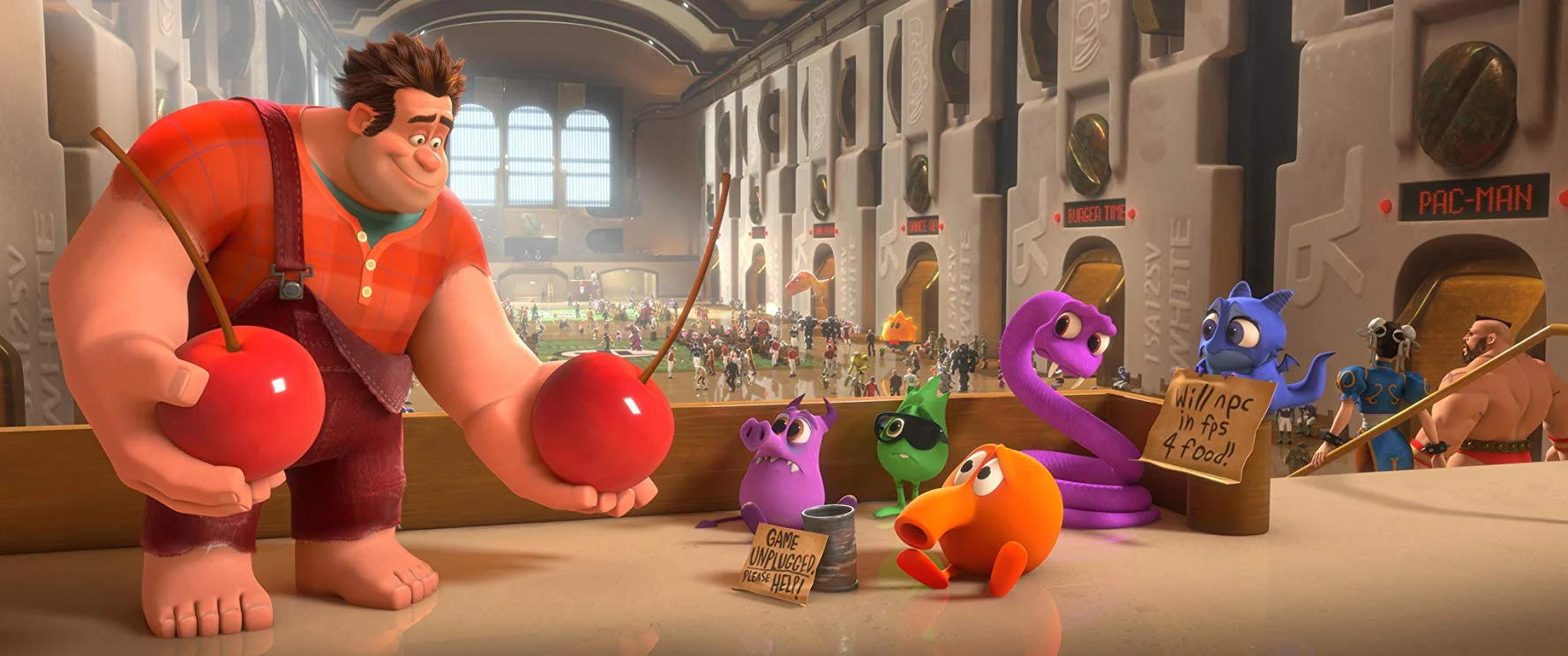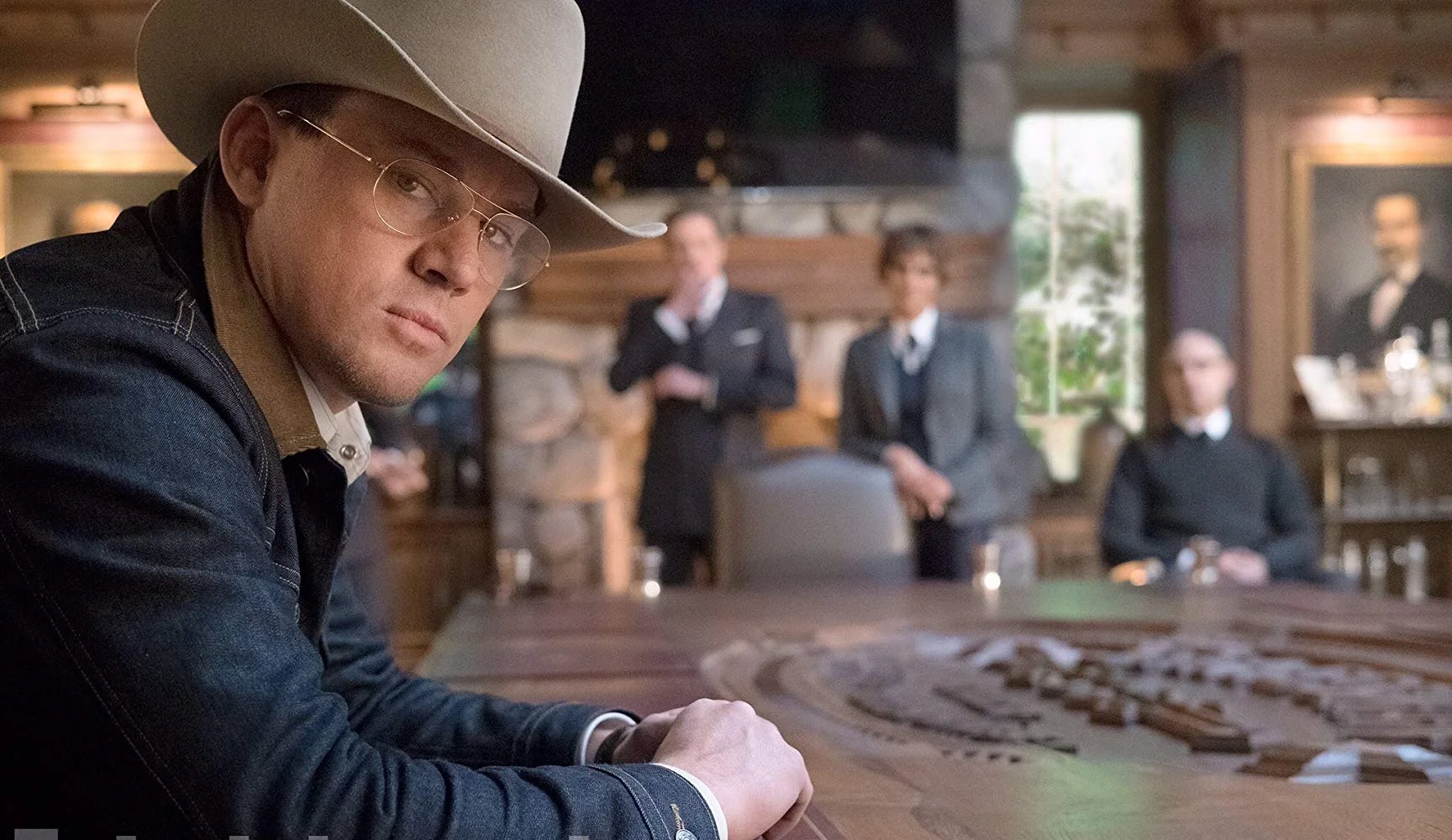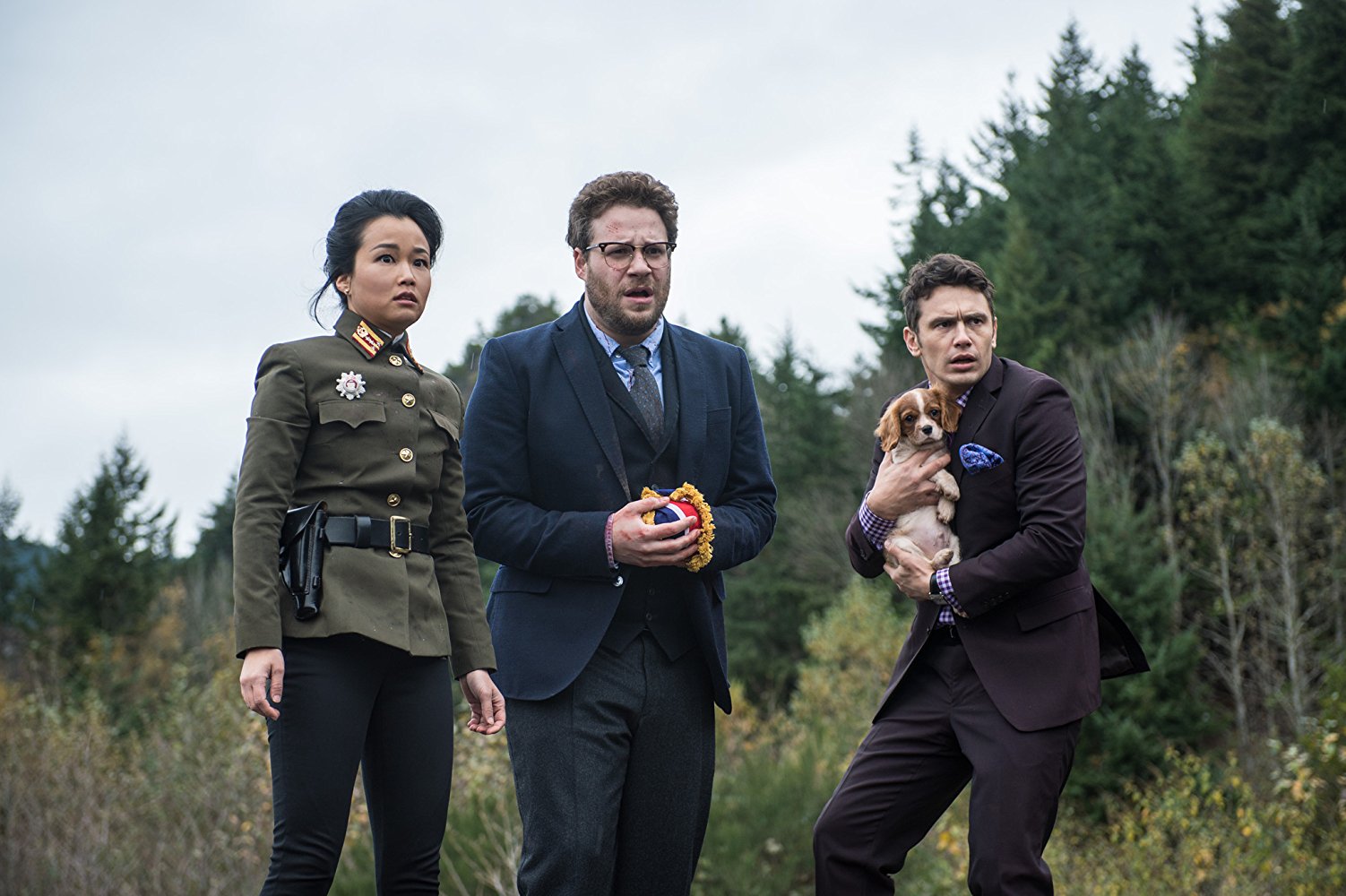Henry Jackman
Henry Jackman is the striking and earnest composer, best known for his contributions to premier action films and animated features including Jumanji, Wreck-It Ralph, Kingsman: The Golden Circle and Kingsman: The Secret Service, Captain America: Civil War and Captain America: The Winter Soldier, Jack Reacher: Never Go Back, Puss In Boots, X-Men First Class, and most recently, The Predator. Coming from a dual background in refined classical training and voluminous electronic music production, Henry applied his multitude of talents to the realm of film scoring, thanks to the guidance of his father, a composer in his own right, and illuminated mentors, Trevor Horn and Hans Zimmer. With nearly 20 years of experience in the field, Henry has developed a reputation for creating scores of epic proportions with remarkable emotional nuance. In our focused discussion, Henry speaks on his early connection to the Predator franchise and shares the advice that positioned him to be an asset to the filmmakers he collaborates with.
Courtesy of Subject
You are originally from London and studied classical music at University of Oxford, later relocating to the states to work under Hans Zimmer and John Powell. Who were the musical luminaries that inspired your path as a composer?
Wow! That's a big question. Before I even thought about film music, I had a weird musical education. It was half really strict classical training, and then I went nicely off the rails later and started doing lots of drum and bass. Early on, I had loads of classical heroes like Debussy and Mahler and sang in a cathedral choir. After that, I got really into pop production and electronica. Trevor Horn was a big influence.
People would always ask, "who's your favorite composer?" and they would expect me to say a film composer, but all my favorite composers were what I would call ‘real composers’ unlike hacks like me. It was quite late in the day that I realized that this weird mix of classical and understanding beats and bleeps would best serve a career in film music. That was thanks to Hans Zimmer’s encouragement. In terms of film composers, my tastes are pretty wide. I really like composers like Jerry Goldsmith, Alan Silvestri, and John Williams. They are what I’d call pre-modern composers who were very focused on the harmony and symphonic aspects of music. Then there was a bit of a revolution in film music later on, which began to incorporate more electronic music and virtual instrumentation. Hans Zimmer is a great example of that. He can do anything.
I’ve got all kinds of influences. It’s a real soup full of all sorts of ingredients. That’s one of the coolest things about film music today; it’s become so eclectic. The kids are coming out with new sounds all the time, so it’s always evolving. I recently did a movie called Trial By Fire, and having a fairly in-depth knowledge of 16th-century English church music turned out to be quite useful. When I did The Winter Soldier's Suite [from Captain America: The Winter Soldier], having a good handle on some of the textures that you find in drum and bass and dubstep turned out to be a useful skill. Working on Jumanji, it was about knowing how to do an action-adventure symphonic score. It turns out that there’s almost nothing that won’t come in handy at some point. You have to keep an open mind because film music can take you anywhere.
What life experiences have had the most profound impact on your professional trajectory?
That's a really good question. I was lucky enough to meet Trevor Horn and hang out within his empire of production. In the late 80’s through the early 2000’s, he was very famous and made a massive impact on music. My father, being the composer he was, was influential and set me on a course for music right away. Meeting and spending time with Hans Zimmer was also a massive pointer towards the world of film music and provided me with an education on the whole art of pairing music to picture. Those were the three biggest inspirations. If I didn’t know any one of those three, I don’t think we’d be having this interview today.
Congratulations! In its opening week, The Predator was the #1 film in America. This high octane, savage work of science fiction follows the invasion of genetically mutated lethal hunters, who are opposed by a fierce group of ex-soldiers attempting to save the human race. Can you tell us about how you became involved with the project? Were you a fan of the Predator series from back in its first iteration starring Arnold Schwarzenegger?
The funny thing is that I have been personally obsessed with Predator for ages, not quite in the fanboy sense. When I was at one of my very strict classical schools, I got to see this VHS bootleg copy of Predator. At the time, it was probably rated 18. You would think that one’s obvious first real recognition of film music, as a boy, would be John Williams. At the time, Indiana Jones was in style, but it was Predator that really impacted me. First of all, I thought it was pretty cool because I was way too young to be legally watching it. Then I started listening to the score, and I was like, “Wait a minute. The music in this movie is really hyper. It sounds like a grown-up symphony!”. It was the kind of music I was studying in school. I thought it was brilliant and it opened my eyes to having this sophisticated harmony combined with this very dangerous and scary sounding version of jazz. When the credits rolled, I saw the name Alan Silvestri come up and made a point to remember the name.
Later on, I mentioned the score to my piano teacher at the time. He was very snobby about it. He said I shouldn’t waste my time listening to film music and should focus on my studies of Brahms and Mozart. I remember thinking, “You are so wrong.” Cut to many, many years later, I end up working in film music and indeed meeting Alan Silvestri, who I heard on that little wobbly VHS bootleg copy. And here I am, doing the fourth film.
Alan Silvestri and John Debney have scored the previous installments of the Predator franchise. How important was it for you to revisit their musical treatments? Did you intend to fashion a brand new musical world or carry over any motifs to create some sense of continuity?
As a massive fan of Alan Silvestri’s score for the first Predator movie, it was huge for me. Given that the film is not exactly a high grab piece of Shakespeare or the kind of thing that picks up loads of Oscars, people may not realize or be aware of how high quality and brilliant the score is. When I got the phone call about the film, I thought they should have probably rung Alan instead. Typically, when you come on to a sequel of something, as a composer, you want to push forward into the future and not necessarily reference themes or material from previous versions. For this, it was the other way around. I told the director and the producer how critical it would be to capture the spirit of the original 1987 Predator and weave in some of Alan’s material with the new themes. At the same time, I wanted to do my own thing. We need a new roaring theme for The Predator. I came up with Dirty Dozen and almost eighteen others. It was almost a personal mission of mine to bring everything together because I loved the score and wanted to celebrate it rather than avoid it.
Please tell us about the arsenal of instruments and gear you assembled to bring The Predator to life.
The symphony orchestra was the primary part of the score. We ended up with a full orchestral section — 16 first violins, 12 second violas, ten double bass, loads of woodwinds, a big brass section with cimbasso in there for added power, lots of trombones, big choir, lots of temps and bass drums. We had all the fully celebrated orchestral instruments. To reference the original score’s flavor, I paid attention to Alan's use of a lot of harp. A lot of people mistakenly believe the harp is always going to be gentle, pretty and used explicitly for pastoral or sensitive moments. If you listen to the first Predator score, nothing can be further from the truth. There's quite a lot of marimba and harp used in scary ways, but that’s due to how the harmony works. It’s used to create tension to great effect.
Because we’re in 2018, not 1987, there is electronic production and samplers that come in, but they are not so invasive that you ever lose the primary force of the orchestra. It’s used for critical moments, but I never wanted for the orchestra to sound like it was sitting behind a drum machine. On the other hand, if you are only working with acoustically recorded instruments and a symphony, you would be missing a crucial layer of badassery — the combination of both toughens it up. It can be tricky to find that balance and get the two worlds to work together properly.
What were the specific choices you made to create a contrast between the relentless, vicious beasts and the rugged saviors of our planet?
One of the important things was to step away from the color and the instrumentation as it were and look at the fabric of the music. It helps if you want to get serious about the narrative and not just rely on texture. You have to sort out your theme. Unlike the other Predator films, there was a band of mystic heroes and a crazy gang this time around, led by McKenna. That’s a strong structural part of the story. There is a team in the first Predator, but they were picked off one-by-one. This time, we’re dealing with a rag-tag motley crew of psychologically challenged people because Shane Black is a different kind of director. That dynamic introduces warmth and some comedy into the story.
One of the ways I supported the film was to come up with what I call my Half Dirty Dozen Theme. Once I had that theme, which is very different from the Predator theme, and you wove that into the score, it helped distinguish it from the constant scariness. It was for a moment in the film that had to do with all the crazies trying to come to the rescue, that thematic layer created contrast with the predator focused stuff.
What are your strategies for creating maximum dread within an orchestral score?
Well, there are a few different ways you can achieve that. The question reminds me of this British TV show called The Peep Show that ran from 2003 on. There's this one drug-addled, very shady character, who hits a note on the set that's really low and just holds it for ages in the studio when the band is trying to put a track together. They all look at him a bit confused, like “So, that's it? You're just going to hold that note?”. He has this big Cockney accent, and he goes, "The longer the note, the more dread."
There is a tiny bit of truth to the principle that when you are doing a cue that involves a lot of tension; not moving around too much harmonically and building some long tableau or sustained sensation, it gets a bit unbearable. It actually does help create dread. You need some musical aspect that makes you feel like you're stuck and something is getting worse. Without getting too technical, it also comes down to harmony. Any musician knows that if you strum around on chords like E Major to G Major to A Major, there's nothing particularly scary about that. How you use harmony becomes a massive contributing factor to why something sounds full of jeopardy and unsettling unrest. For example, the Octatonic scale has a lot more inner tension. It is very different from the diatonic scale that most pop music is made out of. If you're trying to write a very unusual mystical, otherworldly, and slightly disturbing piece of music, the Octatonic scale is definitely your friend.
Coming up, you will be returning to compose Ralph Breaks The Internet. What can we expect from your musical treatment for Wreck-It Ralph's next adventure?
Wreck-It Ralph was the first time in my career that I’ve scored an original film and then gone on to a sequel. It was a hugely enjoyable experience. In the past, I’ve done sequels for things like Captain America, so I’ve had to pick up and join in as it were on the second film. This time, I had loads of themes to pull from. Wreck-It Ralph has its own sonic identity, so it was great to have relevant thematic material for Vanellope and of course, Wreck-It Ralph.
The story is completely new. They go to the internet, which is really exciting. I had to come up with a whole sound for the internet and create an internet theme. What was interesting and challenging was taking a lot of the thematic DNA from the first one and then propelling it into a new universe. I got into combining old ideas and putting new clothes on them to create brand new themes.
What would you say are the most defining attributes of Ralph's character that inspire you?
Wreck-It Ralph has got a heart of gold, but he is very physically clumsy. He is very easily satisfied. He's one of those guys who find happiness pretty quickly. Without giving too much away, his character becomes more emotionally complex in the second film. Ralph's desire to hold on to the safe world, that he knows and loves, gets him into a lot of trouble. It’s an interesting combination. He likes his creature comforts, and he likes to keep things simple. He doesn't want to face too many new challenges, but in the second film, he has to learn that doesn't actually work. You can't just hold on to everything you know. You have to face new challenges and meet them with an open mind, not just try to keep things in a safe little bubble.
What are the unique benefits and demands of creating sound worlds for animated features? Does your process differ when you are starting from such a blank canvas sonically?
A little bit. The basic principles are telling a story and figuring out your themes. For me, those aspects are the same regardless of what movie it is. The main difference with animation is the speed at which things change. If you were to watch a scene from The Revenant or Sicario, the rates of change in a scene aren’t massive. You're likely to have a piece of music lasting maybe two or three minutes that has either one overruling psychology to it, possibly two. There's no chopping and changing like crazy. The rate at which things shift in an animated movie naturally ends up being reflected in the music. You might have eight to ten bars of a certain feeling, then cut to a more supportive role, then it might change again. You have to learn the art of slithering from one musical idea to another while keeping a narrative moving amidst different psychologies of music. Because it’s not real, you have more freedom to chop and change, but the narrative generally unfolds faster.
In your career, you have received praise for your work on numerous triumphant and thrilling movies including Jumanji: Welcome to the Jungle, Kingsman: The Golden Circle, The Interview, Captain America: Civil War, and Jack Reacher: Never Go Back. What is it about you as a person that is well suited to compose for these projects?
Fondly enough, I also love working on things that aren't action. There's a movie that hasn't come out yet called Trial by Fire which I did with Ed Zwick, which is very complementary. I generally love big movies because they tend to have a lot of action in them. It doesn't necessarily mean I love doing action films. I know it might sounds cliché, but if you want to do music for big films, there are a lot of things you will have to know how to do. You’ve got to know enough about music, orchestras, programming. That’s a given, and there are plenty of people that know how to do that. I would almost argue that the single most distinguishing skill for a composer is to try and make yourself as useful as possible to filmmakers because the musical skills should already be there.
If you are faced with the daunting task of writing 19 minutes for a movie, it's not just about coming up with something. You have to figure out why you're writing it and what it’s for. A talented guy or girl could write great sounding music, and you could hear it and think it was original, unique, and wonderful, but that music could be utterly useless for the movie at hand. Great composers and great artists, who make phenomenal music, can still end up not being at all useful in improving a movie. That music comes from a source where it’s uninterrupted and not inspired by anything they see. If it’s not relevant, it won’t help support the specific narratives and characters of a movie. I learned that very early on from Hans Zimmer. He deliberately said, “Of course, film has got nothing to do with music. It’s about telling a story. You’re using music to tell the story, but the story is the most important thing”. That’s true because if you were a director, you would choose a less talented musician, who was focused on the narrative and how to accent certain characters, over an incredible musician, who was tilting the film and getting in the way of achieving your vision. Everyone should be writing the best music they can, but the real difference between a standalone artist and a composer to picture is understanding why you are writing this music, and its narrative purpose.
As a composer, you have to be able to think outside the box. For example, a movie is set in 16th century France. You have to think about what would be a good sound for the Huguenots and the Catholics who are engaging in a religious war. You can’t just make whatever you want. It has to have appropriate treatment. Whatever it is, you have to get inside the head of the movie, the character, the scene, the setting, the century. It’s key because you can write a brilliant piece of music, but you can also do that without helping anybody. I look at it like you have a lot of freedom to roam around and explore, but you can’t just go to any destination. The context of the film limits you to a specific area, one country.
The movie is always bigger than anyone even if you’re a superstar actor. It doesn’t matter who you are regarding your status as a musician. You are a servant. That’s the road to being successful. The director has a vision, they’ve made a movie, and they need music. It’s your job to understand, collaborate with them, and then see how the musical skills you have can be used to enhance what’s already there. There is still room to express yourself as an artist, but you can’t be self-indulgent.
If you had to take on a predator yourself, what would your theme song be?
Well, if I saw one in real life, I’d run or try to hit him with bear spray. I would choose one of the action keys I wrote for the film. It would be a nice way to set my score to my impending death. The biggest risk I’ve encountered, living where I do, was going for a hike and bumping into a mountain lion. I think I’d be pretty upset if I bumped into a predator, that would be a lot more challenging.
Interviewer | Paul Goldowitz
Research, Editing, Copy, Layout | Ruby Gartenberg
Extending gratitude to Henry Jackman and Costa Communications.









